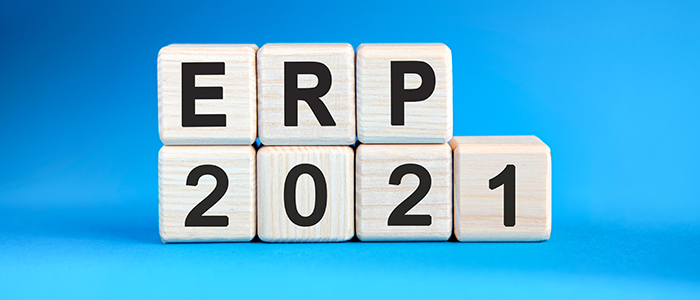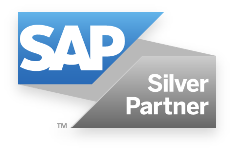ERP trends for 2021

Enterprise resource planning (ERP) is an area that continues to expand, evolve and grow. Some of that growth is down to new developments in how ERP is used, while other leaps are facilitated by the emergence of complimentary technologies, but in either case, the year ahead should see some exciting developments.
Here’s what you can expect to see from ERP in the coming year:
Further cloud usage
The cloud has come along way since its early days, and more and more companies are making their ERP solutions cloud-based. Migrating to the cloud allows for better, faster performance, excellent data security, and easy access for multiple users.
Using the cloud need not be any more expensive than the on-premise alternative, and the options for expansion and integration with other applications is a huge bonus that organisations will want to take advantage of.
More integration with IoT and AI
Use of IoT technology was already on the rise before the COVID-19 pandemic made remote work and automation vital for companies to continue operations. How does ERP factor in though?
Integrating IoT and ERP means that organisations can collect, process and evaluate vast sums of data through connected IoT sensors. Meanwhile, automation, or AI, software means that the amount of manual data entry can be significantly slashed, allowing for smoother running and improvement in areas such as accounting, report generation, customer service and stock management. By embracing IoT and AI into ERP, companies can upscale their use of automation to complete manual tasks, cutting operating costs in these difficult times.
Customer-focused ERP
Social media and consumer review sites have irrevocably changed the way that businesses interact with end users. These clients and customers can now reach out and start a public discussion, or leave feedback, in seconds.
By using ERP, organisations can create a more polished system of interacting with these customers by reducing response times, generating alerts and notifications for any comments across social media channels, and ensuring that customer satisfaction is improved by creating a more attentive online presence.
Integrating a CRM (customer resource management) tool into an ERP system takes things a step further. A CRM provides access to a set of tools and customer information that make increasing sales, engagement and retention rates much easier, such as purchase histories, habits, and other significant details.
Mobile applications
Complete mobile support is now a basic tenant of modern ERP tools, thanks to a multitude of benefits that simply cannot be done without any more.
For a start, there’s the constant access to data, and the ability to carry out tasks and essential operations anytime and anywhere. With both front-end and back-end activities easily accessible on all devices from laptops, tablets, to phones, the opportunity to increase overall productivity is huge.
While frequently working outside of office hours should never be encouraged, workers who aren’t at their desks during normal hours, or who deal with businesses in other countries, can easily carry out essential tasks wherever they with full access to all the information and tools they could need.
Finally, utilising mobile ERP activity means that data can be captured straight from field without the need to return to the office for processing, while workflow and decision-making are also improved thanks to constant connection.
Increased access to real-time data
Organisations can take advantage of real-time data to create smoother operations, such as customer service, thanks to more precise insights.
Real-time insights can pull together information from the various tools used by disparate departments, allowing for the much smoother communication of relevant data across all areas of any business
That means that management gets greater insight into metrics and data from various sources and departments to enable more informed decision making. Thanks to these benefits and more, ERP systems are rapidly making real-time insights part of their set of core capabilities.
Personalised ERP
Recently, a new, modular approach to ERP has allowed smaller businesses to take advantage of the technology. A further effect of that proliferation is that personalisation has become even more desirable, with one-size-fits-all ERP offerings becoming more of the exception than the rule.
That’s not to say that every single organisation will be able to have an ERP system built from the ground up to suit them. Rather, there will be more ERP tools that are tailored to specific industries, with features and functionality that matches and supports unique requirements. Standardisation of these industry-ready solutions will also make deployment and updating faster, while also making it easier for non-specialist employees to get to grips with them.
If you’d like to discuss how APH can help your company jump on these ERP trends get in touch. We’d love to hear from you.

